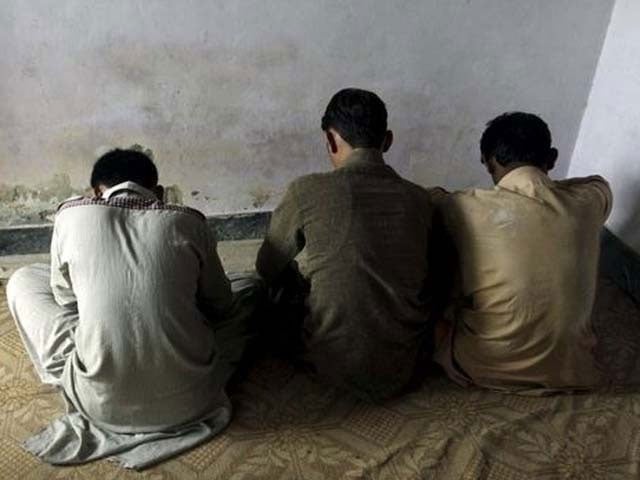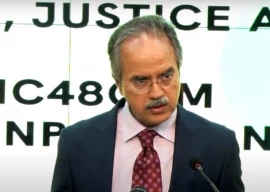
A parliamentary panel on Thursday pleaded for moderation while revising the 155-year-old Pakistan Penal Code (PPC) 1860 and rejected punishment for consensual acts of adults as proposed in the newly-introduced definition of ‘sexual abuse’.
The issue came under discussion when the National Assembly Standing Committee on Law, Justice and Human Rights okayed, after some fine-tuning, the ‘Criminal Law (Amendment) Bill 2015’ seeking amendments in the PPC 1860 and the Code of Criminal Procedure 1898.
However, there was some confusion over the development as voting did not take place over the amendments proposed by PPP’s Naveed Qamar.
He told The Express Tribune that the committee had accepted his amendment whereby consenting people over the age of 18 should not be punished.
Read: HRCP’s team reports large-scale sexual abuse
On the other hand, committee chairman Mehmood Bashir Virk of the ruling PML-N said the NA body had not made any amendment in the definition of ‘sexual abuse’ but the lower house could make changes.
The government has proposed inserting new sections in the PPC: 377A which defines sexual abuse as “whosoever employs, uses, forces, persuades, induces, entices or coerces any person to engage in or assist any other person to engage in fondling, stroking, caressing, exhibitionism, voyeurism or any obscene or sexually explicit conduct or simulation of such conduct either independently or in conjunction with other acts, with or without consent, is said to commit the offence of sexual abuse.”
The punishment is described in 377B: “whoever commits the offence of sexual abuse shall be punished with imprisonment of either description for a term which may extend to life imprisonment and liable to fine which shall not be less than Rs500,000 or with both.”
However, PPP’s Qamar and PTI’s Ali Muhammad Khan opposed the idea of punishment if an action takes place with mutual consent between adults.
Following a brief debate, the committee agreed to add the age limit of ’18 years’ and deleted ‘with or’ from ‘with or without consent’.
Moreover, the committee chairman opposed the proposed punishment of ‘life imprisonment’. After some debate, the committee agreed that the maximum punishment for the offence should not be more than ‘seven years of imprisonment’.
Child abuse
To make laws related to child sex abuse more stringent, three new sections (292A, 292B and 292C) of PPC 1860 have been introduced.
Section 292A – Exposure to seduction – states that whoever seduces a child shall be punished with a prison term of one to seven years or with a fine of Rs100,000 to Rs500,000 or with both.
Section 292B defines ‘child pornography’ and section 292C deals with punishment for it: those involved in the offence shall be punished with a prison term of two to seven years or with fine of Rs200,000 to Rs700,000 or with both.
Read: Kasur scandal accused granted bail
During a discussion on the newly inserted section 328A (Cruelty to child) – according to which the offender shall be punished with a prison term of one to three years or with fine of Rs25,000 to Rs50,000 or with both – PTI’s Munaza Hassan cited laws in the West according to which parents can also be prosecuted. Law ministry officials said the word ‘whoever’ included parents as well.
Meanwhile, the committee unanimously passed the ‘National Commission on the Rights of the Child Bill 2015’.
PPP’s Naveed Qamar said legislation over the subject could not be formulated without the approval of the provinces after devolution. To address this lacuna, the committee chairman suggested sending a dissenting note of the NA body.
Published in The Express Tribune, August 21st, 2015.

















COMMENTS (13)
Comments are moderated and generally will be posted if they are on-topic and not abusive.
For more information, please see our Comments FAQ